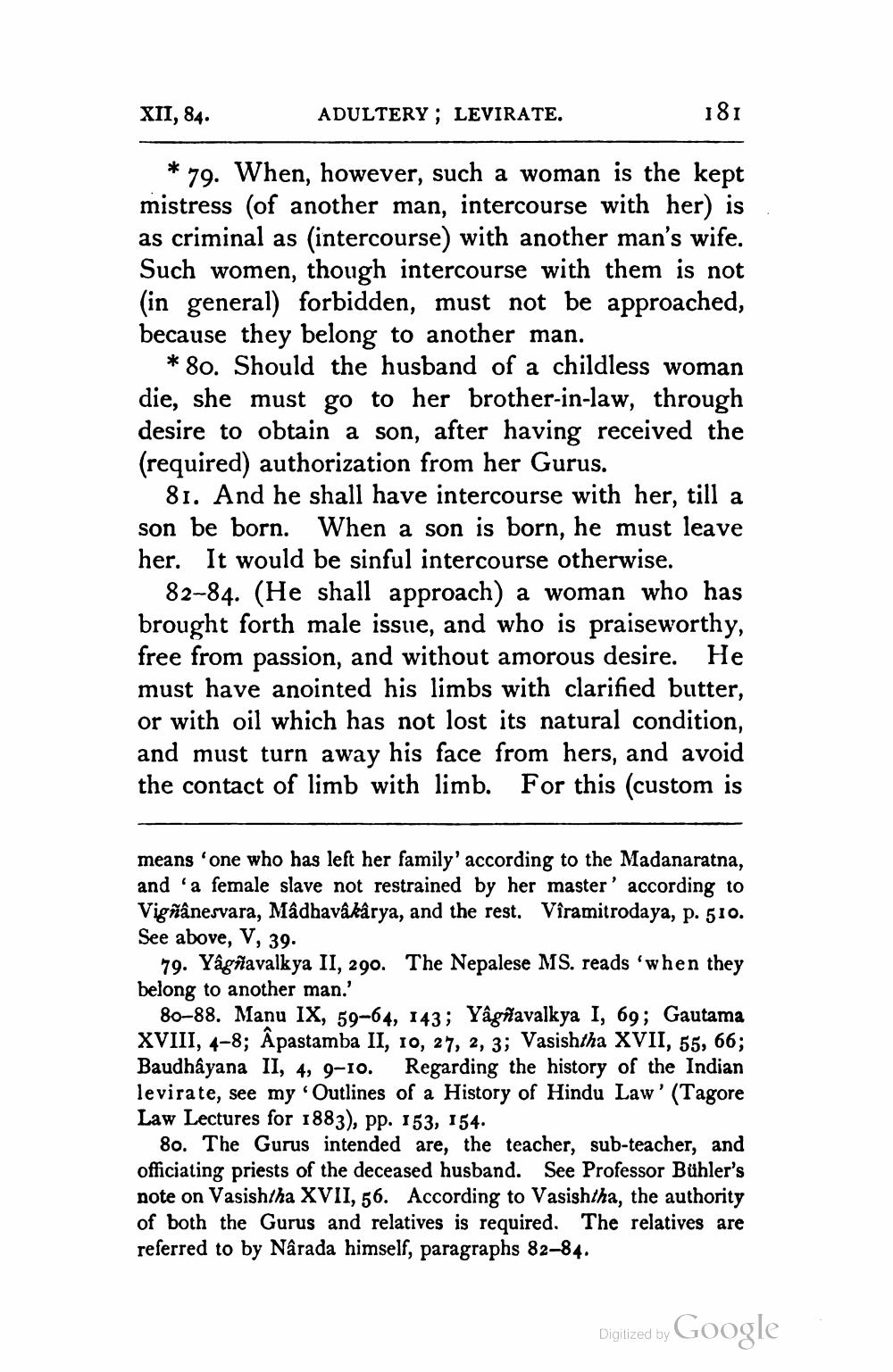________________
XII, 84.
ADULTERY; LEVIRATE.
181
*79. When, however, such a woman is the kept mistress (of another man, intercourse with her) is as criminal as (intercourse) with another man's wife. Such women, though intercourse with them is not (in general) forbidden, must not be approached, because they belong to another man.
* 80. Should the husband of a childless woman die, she must go to her brother-in-law, through desire to obtain a son, after having received the (required) authorization from her Gurus.
81. And he shall have intercourse with her, till a son be born. When a son is born, he must leave her. It would be sinful intercourse otherwise.
82-84. (He shall approach) a woman who has brought forth male issue, and who is praiseworthy, free from passion, and without amorous desire. He must have anointed his limbs with clarified butter, or with oil which has not lost its natural condition, and must turn away his face from hers, and avoid the contact of limb with limb. For this (custom is
means 'one who has left her family' according to the Madanaratna, and 'a female slave not restrained by her master' according to Vigñânesvara, Madhavâkârya, and the rest. Vîramitrodaya, p. 510. See above, V, 39.
79. Yâgñavalkya II, 290. The Nepalese MS. reads 'when they belong to another man.'
80-88. Manu IX, 59-64, 143; Yâgħavalkya I, 69; Gautama XVIII, 4-8; Âpastamba II, 10, 27, 2, 3; Vasishtha XVII, 55, 66; Baudhayana II, 4, 9-10. Regarding the history of the Indian levirate, see my 'Outlines of a History of Hindu Law' (Tagore Law Lectures for 1883), pp. 153, 154.
80. The Gurus intended are, the teacher, sub-teacher, and officiating priests of the deceased husband. See Professor Bühler's note on Vasishtha XVII, 56. According to Vasishtha, the authority of both the Gurus and relatives is required. The relatives are referred to by Nárada himself, paragraphs 82-84.
Digitized by Google




